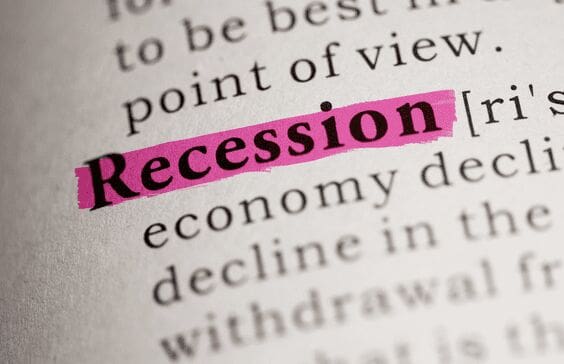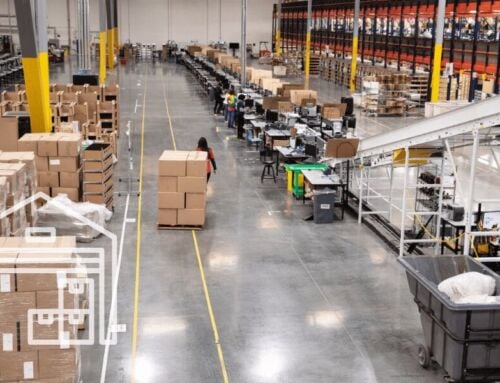Author
RMS Marketing Team
Share
6 Ways to Recession-Proof Your Retail Business

The current climate is an undoubtedly worrying time for retailers with every likelihood pointing to a recession in the near future. The Bank of England warned that the UK ‘is expected to be in recession for a prolonged period’, stating that: ‘The UK economy is expected to remain in recession throughout 2023 and the first half of 2024.’ Whether you are selling online or on the shop floor, there are ways to ensure that the recession has a minimal impact on your sales and your business is protected.
Here are 6 ways to prepare you and your business for a recession:
1. Invest in your digital future
Over the course of the pandemic, it became clear that businesses made significant digital transformations in order to respond to the way COVID19 affected trade. In truth, the pandemic has had a huge impact on the way businesses operate, with retailers facing the decision to take a proactive step in adopting digital systems or risk getting left behind.
The bottom line is that the retailers that took the necessary steps towards operating via strong digital infrastructures were far better prepared to take action when COVID19 hit. In stark contrast, retailers that didn’t have this in place were simply taking steps to survive.
If you did take those steps, that’s great news! You can continue to improve and develop your business. Perhaps you’re selling online but are yet to link your online business to your EPoS. If that is the case, there has never been a better time to get all your systems integrated.
If you’re reading this and have yet to incorporate a digital solution such as an EPoS system, then it will be essential to make the transition as soon as possible or risk being left behind. As consumer spending is down, use the opportunity to find the right system for your business and get it into action in preparation for the coming months.

2. Unify your channels
A strong presence across multiple digital platforms is a great start but in order to have a unified presence online, these channels need to be connected and all data in sync.
Having a ensures that all of your sales channels are unified, providing a range of services such as local store fulfilment, same-day delivery and curb side pickup. Post-pandemic, these services are in high demand.
It became clear that the way these services were accessed by people at home during the pandemic has now paved the way to it being an essential way of life post-pandemic. So if your business isn’t set up to offer a range of these services, now is the time.
3. Get your business figures in shape
Business Gateway suggests looking at 4 key cost areas:
- Suppliers – are you getting the best deal from suppliers? Can you negotiate better terms or do you need to change supplier? Can you drive better deals by consolidating your supplier base? Can you buy on a ‘just in time’ basis to make more effective use of your working capital?
- Finance – do you need to review your finance facilities? – are they at the most competitive terms available? Are you using any loans and overdrafts effectively?
- Premises – have you examined whether you are getting the most out of your space? Are there more efficient ways to use your premises? Could you sub-let some unused space or invite a concession onto your premises?
- Production – have you assessed whether you can cut waste and lower the costs of your materials. Check whether you can adapt your production processes so they are more streamlined, using fewer working hours or resources to cut labour costs.

Make use of KPIs to ensure that as a business, you are meeting your goals and developing your strategy throughout the recession.
4. Build stronger customer relationships
Entrpreneur.com suggests that ‘As a key to any good relationship, communication is an essential way to build customer relationships. Promoting your business and listening to your customers are equally important.’
It continues: ‘If you have employees, teach them how to effectively communicate with customers. Instead of waiting for customer service to become a problem, foster communication skills with customers while onboarding new employees.’
5. When revenue picks up, stockpile cash
Best practice is to ensure that even in a downturn, you have maintained a sufficient level of liquid funds at all times. Investopedia suggests that ‘a persistent and growing reserve typically signals strong company performance.’
But how much cash is enough? Thebalancemoney.com suggests ‘a cash buffer of three to six months’ worth of operating expenses is the commonly cited rule of thumb’ and it doesn’t hurt to exceed this in tougher times and when preparing for longer periods of economic downturn.
6. Position your business creatively
In times of economic downturn, consumers are far less likely to want to part with their money. Retailers need to ensure that they recession-proof their business by remaining relevant to consumers’ lives.
Customers are looking to make smart choices where spending is concerned and invest sensibly with their purchases. Head of Consumer Products at Barclaycard, José Carvalho, said the rising cost of living was ‘clearly leading Brits to cut back on some non-essential purchases.’
Now is not the time to be pushing ‘indulgence’ and ‘luxury’ moreover, it’s the time to be realistic about the current climate and remain sensitive to the financial situations of customers. With retailers being in a similar position of finding themselves in tougher financial times, relationships between businesses and their customers may be stronger as a result.
Can you make it a part of your plan to market your business, products or services with the recession in mind? How can you resonate with your customers who are less willing to part with their cash? Can you reposition your marketing to target customers in the next income bracket? Knowing the answers to these questions may help you focus on your marketing as we combat the coming recession.
Key Takeaways
Most of the tips we have covered in this article hinge on one common aspect of your business: your retail management system. Whether you use multiple pieces of hardware and software to manage your business, or you’ve already upgraded to a unified solution, you must have full oversight of your business and the capability to streamline your operations in order to survive an economic downturn.
OpSuite Retail Management Solution from RMS has the features, functionality and tools you need to become as efficient and profitable as possible, and can assist you to put all six of our recession-proofing tips in place.
OpSuite is a flexible, scalable, cloud-hosted solution which allows you to efficiently and profitably sell across your single, multi or omni-channel business touchpoints such as physical store, and eCommerce website, from one system.
So, if you’re ready to future-proof your business, by upgrading your EPoS and retail management solution, our expert team would be delighted to discuss your needs and your future plans. Get in touch with us today and discover OpSuite from RMS.
Why choose RMS?
RMS have worked with ambitious businesses for over 18 years, supplying tailored software solutions and EPoS hardware from the Shetland Islands to the Seychelles. We work with businesses in most retail verticals, contact us and discover how we can support your business to increase profits with the latest technology.
Bonus Tips
For six ways to boost your profits, watch this short video:
Key Terms
Share:
Sign up now for news and special offers!
Join our Newsletter
*We are collecting your email information in order to add you to our newsletter recipient list. You can unsubscribe from our communications at any time. You can do this by contacting us or by clicking the unsubscribe button on any of our communications with you.
You can find more information about the details we hold about you and the way we use them in our privacy policy, and you can access this here or we can send you a copy.




